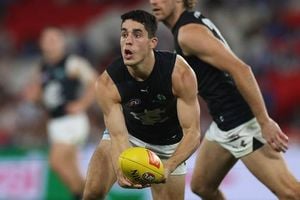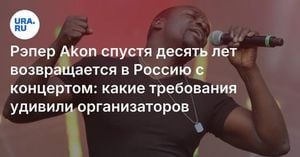Discussions surrounding the future of the Grünwalder Stadion, home of TSV 1860 Munich, have intensified as major stakeholders seek clarity on whether to renovate or replace the aging venue. Hasan Abdullah Mohamed Ismaik, the majority shareholder of TSV 1860, has reiterated his belief, stating emphatically, "Regarding the Grünwalder Stadion, I have always emphasized the expansion of the stadium is not relevant for us. With so much money, around 80 million euros, we could build a new stadium entirely." This assertion marks yet another turn in the complex narrative surrounding the club's struggle with its current facilities and the need for strategic financial planning.
München's Mayor, Dieter Reiter, has taken to social media to engage with fans, seeking their opinions on the matter. He posed the question on Instagram, "Grünwalder Stadion: Time for a decision! What will happen next with the Grünwalder? I would also like to know!" Reiter has made it clear he favors renovations to make the stadium fit for 2. Bundesliga requirements, contingent on TSV 1860 agreeing to a long-term rental contract of at least ten years. He remarked, "What we do not need is to invest 100 million and then Ismaik one year later brings us with new stadium plans."
The demand for change is palpable among the fanbase, and the response to Reiter's Instagram post reflects overwhelming support for expansion. Initial analyses show 92% of commenters advocated for enlarging the stadium, with others favoring only basic repairs or considering more radical alternatives such as moving to the Olympiastadion. With less than 10% favoring repair-only options, it's evident where the majority sentiment lies.
Financial viability is the crux of the discussion, underscored by findings from impact studies commissioned by former management. Ismaik, expressing his stance on the stadium's future, said, "Since we have been paying rent for years, we can never recover this cost. Instead of rent installments for financing, we could have already owned a new stadium." His perspective centers on economic sustainability, advocating for decisive action toward maximizing return on investment amid the club's competitive demands.
The situation is complicated by the current leadership shakeup at TSV 1860, with upcoming elections expected to influence strategic decision-making. Allegations of discord within the club management, including the recent departures of key personnel, have raised concerns about unified communication during negotiations with the municipality. Reiter stated, "The Lions must speak with one voice—presidency, management, and investor—without unilateral moves, which do not serve any of us. A collective approach will be necessary to navigate the future."
Meanwhile, there remains the ever-present emotional connection fans have to the Grünwalder Stadion, seen as more than just bricks and mortar but as symbolizes their heritage and history. Ismaik has acknowledged this sentiment but pressed on the necessity for economic reality, stating, "I can understand the Ultras and fans who cling to the Grünwalder Stadion for nostalgic reasons, but as the 60% owner, I have to think about economic viability, and it is not available at Giesings Heights. This sentiment was echoed by findings indicating Giesing cannot sustainably support professional football financially."
The current discourse presents both challenge and opportunity for TSV 1860. With growing public interest, the municipal assembly is expected to address the stadium's future within 2025. The urgency of clear communication from the club is more pronounced than ever, as any pending decision will shape the future of the iconic venue and potentially redefine its place within Munich's sporting fabric.
Considerable investment either way—whether for expansion or entirely new construction—takes front-and-center stage. Reiter's resolution to engage with the fans and include their feedback has positioned him as a proactive steward of the local football community. Meanwhile, as Ismaik plans his imminent visit to Munich, the question remains whether he can align the diverse stakeholders of TSV 1860 behind a shared vision for the club's future.
With the clock ticking and increasing pressure on decision-makers, it is clear the next steps are pivotal for not only the future of the Grünwalder Stadion but also the long-term health of TSV 1860 Munich itself. The ramifications of these discussions will undoubtedly resonate throughout the club and its community for years to come, making this period both unprecedented and full of potential.



